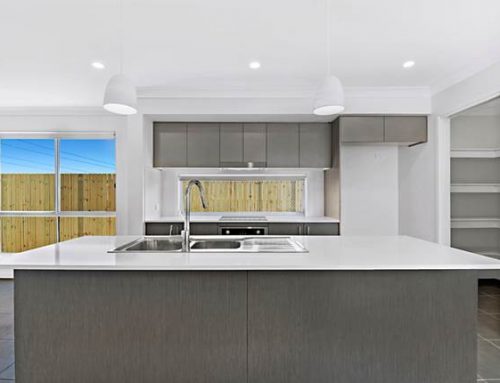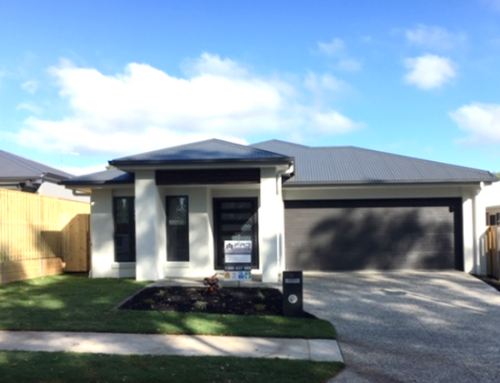
More Australians are investing in property than ever before and while most investors are achieving excellent returns, very few are aware of the dynamics of tax with concern to their properties.
There are some significant tax benefits available for investing in property, especially new house and land packages. This article takes a close look at what these tax benefits are so you can make the right decisions early.
Offsetting the costs of your investment property
The costs of owning and maintaining your investment property can be offset against a few general income streams. Choosing the right property to meet your finance and tax needs can mean that your out of pocket input is quite minimal.
Rental income
Rental properties are income producing assets in that you should receive rental income from tenants.
Rental and other rental-related income is made up of the full amount of rent received from the tenant and any other associated payments you receive or are entitled to during the course of ownership – regardless of whether it is paid directly to you or your agent.
Rental related income types include:
- letting or booking fees
- insurance payouts
- reimbursements for repairs or maintenance
- bond you’ve become entitled to.
For tax reporting purposes you must include the full amount of rent and rental related income earned in your annual return.
Ownership of investment properties
Before buying an investment property it’s important to investigate the best structure for ownership of the asset.
Typically rental income, expenses and tax benefits are shared between owners or partners pro rata to the ownership.
In the case of a married couple where one partner earns all of, or the greater income, and therefore has a greater income tax liability than the other, the ownership would be majority (if not all) to the higher income earner. This would ensure greater tax benefits (returns) from the investment property.
Co-owners of investment property – but not in business
A person who co-owns rental property is typically regarded as an investor who is not carrying on a rental property business, either alone or with co-owners. This is determined by the limited scope of the rental property activities and the limited degree of time to which the owner or co- owners participate in the rental property activities.
Dividing income and expenses by way of legal ownership
Co-owners who aren’t carrying on a rental property business must divide the income and expenses generated for the rental property or properties pro rata to their legal share of the property.
If they are joint tenants, each holds an equal interest in the property.
If they are tenants in common, they may hold unequal interests in the property. For example one party may hold 80 percent and the other party may hold 20 percent (depending on their investment strategy).
The Tax Office tells us that rental income and expenses must be distributed pro rata to legal interest and ownership, regardless of any secondary agreement between co-owners, expressed either verbally or by writing stating otherwise. Meaning the Tax Office will not accept alternative incomes and expenses claimed in your tax return.
Example
Mr and Mrs Bailey are joint tenants in a rental property. They are not carrying on a rental property business. Mr Bailey earns $35,000 per annum while Mrs Bailey earns $80,000. Considering that the majority of expenses are paid from Mrs Bailey’s income she believes that she should be able to claim up to 80 percent of the expenses as deductions against income, therefore saving more tax than otherwise pro rata 50 percent.
The Tax Office however informs Mrs Bailey that considering her and her husband are joint tenants in the property the relevant reductions must be shared in line with their equal legal share in the property. Therefore the Bailey’s must claim 50 percent of the total income and expenses in their next tax return.
If Mr and Mrs Bailey had established a tenants in common structure when purchasing the investment property, they could have made Mrs Bailey’s share 80 percent of the legal interest of the property with Mr Bailey holding the remaining 20 percent. This structure would allow Mrs Bailey to claim 80 percent of the total and expenses in her next tax return (providing a greater return and reducing their overall out of pocket cost to maintain the investment property).
Partners or parties carrying on a rental property business
When you’re carrying on a rental property business in a partnership with other parties, you must divide the total income and expenses according to the partnership agreement regardless of the legal interest (share holding) in the property.
If you don’t have a partnership agreement, the Tax Office suggests that you should divide the total income and expenses between parties equally.
The Tax Office says you are carrying on a rental property business if:
-
- the size and scale of your rental property activities are significant
- there’s a considerable number of hours spent on the activities
<li”>extensive personal time is dedicated to the involvement of the rental properties
- there’s a clear and present business strategy / plan put in place with concern to the rental property activities.
Rental expense deductions
A rental property is a tax effective investment. You can claim a tax deduction for certain types of expenses you incur during the period your property is either rented or available for rent.
You can’t claim deductions for expenses of a capital or private nature, or for anything related to living in the property yourself.
You may be able to claim a deduction for depreciation or include certain capital items as part of the cost base of the rental property against capital gains tax (CGT) should you ever choose to sell the property.
Types of rent related expenses
The Tax Office provides three types of rental property expenses:
- non-deductible expenses
- deductible expenses which you may claim in the year the expense was incurred, anddeductible expenses which you may apportion the claim over a number of years.
Apportionment of rental expenses
You’ll need to work out the deductible portion of rental expenses when not all of your expenses are tax deductible. This is easily done by subtracting our non-deductible expenses from deductible expenses.
Situations where this is needed include:
- when or if your property is available for rent for only part of the year
- when only part of your property is used for rent
- when you rent your property at non-market or non-commercial rates (ie: to family).
Example
Katie owns a holiday house on the Tweed Coast. Each year she rents out the property during the period 1 November to 30 March the following year being a total rentable period of 150 days. She lives alone in the holiday house for the rest of each year fishing along the Tweed River.
The council rates on the property are equal to $1,500 per year which Katie apportions over the time the property was rented.
Rental expenses x portion of year rented = deductible amount
Therefore Katie can claim $1,500 x 150/365 = $616
Any other general expenses such as telephone and electricity may also need to be apportioned on a reasonable basis.
Non-deductable expenses
Rental property expenses for which you are not able to claim a deduction include:
- property acquisition and disposal costs, including but not limited to advertising expenses, conveyancing costs and stamp duty
- expenses not actually incurred by you as the owner of the property including water, telephone and electricity costs being a responsibility of the tenant
- expenses which are not related to the rental property, including expenses in relation to your own personal use of the property (holiday home that you may rent out for only part of the year).
Acquisition and disposal of property expenses
You’re unable to claim an immediate deduction for the costs of acquiring or selling (disposing) of a rental property, including the cost of the property, stamp duty of the transfer of title, advertising and marketing fees and conveyancing fees.
Many of these expenses may make up part of your cost base of the rental property for the purpose of offsetting capital gains tax upon sale.
Deductable expenses
As rental properties can be a tax effective investment, there are many expenses for which you can claim an immediate deduction in the income year for which you incur the expense.
These can include:
| Advertising and marketing for tenants | Bank charges, fee and borrowing costs |
| Body corporate fees and charges | Cleaning and general tidiness expenses |
| Council rates and water charges | Electricity and gas |
| Gardening, yard maintenance and lawn mowing | Audio-video service charges |
Insurance costs:
|
Rental, tenant or lease contract/documents:
|
| Interest on loans (lines of credit) | Land tax |
| Legal expenses (but not conveyancing fees) | Mortgage discharge expenses |
| Pest management | Property agents fees and commissions |
| Property management fees | Quantity surveyor’s fees |
| Routine repairs and maintenance | Property bookkeeping fees |
| Security fees | Servicing costs to household items |
| Stationary and postal | Telephone calls and line rental |
| Tax and accounting related expenses | General maintenance of property |
| Travel expenses for rent collection visits | Travel expenses for routine property inspections |
You can only claim expenses if you actually incur them. Some expenses can be claimed in full in the income year in which they incur, while others may be apportioned over a number of years.
Body corporate fees and charges
You can claim a deduction for the body corporate fees and charges you incur for your rental property. Body corporate fees and charges are incurred to cover the administrative and maintenance costs for the property (or building or development).
General payments made to the body corporate are considered payments for the services administrated by the body corporate and can therefore by claimed as a deduction at the time you incur them.
These expenses may make up part of your cost base for the purpose of offsetting capitals gains tax upon sale of the rental property.
Interest on loans
If you borrow money to invest you can claim the interest or a portion of the interest charged in the loan as a deduction.
Your rental property must be an income producing asset. This means you can only claim a deduction if the property is rented or available for rent in that income year.
If or when you start to use the rental property for private purposes, you cannot claim interest expenses incurred after you start using the property for private use. You must apportion the expenses for the purpose of claiming your deduction.
If you borrow money to buy vacant land to build a rental property, or to finance the cost of renovations to a property you intend to rent out, the interest expense on the loan will be deductible from the time in which you took out the loan.
If your intentions change and you decide to ultimately use the property for personal or private use then you cannot claim the interest expense as a deduction from the time you changed your intentions.
If the property is rented or available for rent you may also claim deductions for interest claimed on loans taken out to:
- purchase depreciating assets for the rental property
- conduct repairs
- conduct renovations.
It’s important to consult a recognised mortgage broker, tax agent and the Tax Office about the right loan structures for clearly identifying and calculating the correct deductions with respect to your rental property.
Example
Diane decides to contact her mortgage broker and take out a loan for $330,000 for which $300,000 is to be used for a rental property and $30,000 is to be used to put a pool in her principle residence. The Tax Office advises her that she will need to work out each year the total interest costs towards the rental property for a tax deduction.
If broker gives her a fixed rate of 6.7%, and the property is rented from 1st July, then the apportionment of interest payments relating to the rental property will be:
Total interest expense x rental property loan / total borrowings = deductible interest
$22,110 x ($300,000 / $330,000) = $20,099
Legal expenses
Many legal expenses are of a capital nature and are therefore not tax deductible including:
- the costs of purchasing or selling your rental property
- resisting land resumption, or searches for title disputes.
Some expenses incurred in producing rental income from your rental property are deductible including the cost of evicting a non- paying tenant or taking legal action to recover lost rent or the cost of damages and repairs.
Routine repairs and maintenance
The expenses relating to routine repairs and maintenance you make to a rental property may be tax deductible. Expenses must be related to repairs for general wear and tear and or damages which occur as a result of renting out the property.
Repairs generally include the replacement of new items/parts and the costs of installation.
Major works including replacing structures, major improvements, renovations and extensions are of a capital nature and are not deductible during the course of maintaining the rental property.
Repairs and maintenance to a rental property are typically deductible:
- if the property is rented on an ongoing basis
- the property is available for rent but there is a short period when the rental property is unoccupied, for example where weather or other natural/seasonal occurrences causes cancellations of bookings
- reasonable marketing and advertising fails to attract tenants.
In the case where you may no longer rent the property, the cost of repairs may still be deductible:
- if the need for repair is related to or from the period in which the property was used to generate income
- if the property was income producing during the year the cost was incurred.
Examples of repairs which are deductible:
- maintaining plumbing
- repairing or maintaining electrical appliances
- replacing broken windows or doors.
Examples of repairs which are not deductible:
- landscaping the grounds of the rental property
- insulating the rental property
- major structural amendments, major renovations or adding another room.
You may be able to claim a deduction for the cost of travelling to inspect, maintain or collect rental income from your rental property.
If the sole purpose of your trip relates to the rental property you may claim all of the associated costs where you may only claim part of the trip (apportion costs) if you are planning other activities.
For example if you fly to inspect your rental property, stay overnight in a hotel and return home on the following day, all of the travel and accommodation expenses would be allowable deductions.
If the main purpose of your trip is a holiday then you may not claim the travel costs, only those local costs relating to the day of inspection and a portion of accommodation.
Expenses you can deduct over time
While there are immediate tax benefits through deductible expenses with relation to your rental property there are three mains types of expenses you may incur which can be claimed over a number of years:
- borrowing expenses
- amounts for a decline in value of depreciating assets
- capital works deductions.
Borrowing expenses
When taking out a loan to purchase a rental property there are expenses including:
- loan establishment fees
- general mortgage broker fees
- title search fees
- mortgage duty charged
- costs of preparing and lodging mortgage documents, which may be deductible over time.
Borrowing expenses may also include costs the lender imposes upon a borrower as a condition of finance approval including mortgage insurance.
If your total borrowing costs are greater than $100 (which is more than likely) these expenses may be deductible over five years (or the term of the loan, whichever is less). If the borrowing costs are $100 or less they may be deductible in the year they were incurred.
If you’re able to pay back the loan in less than five years, you’ll be able to claim the balance of the borrowing expenses in the year of the repayment of the loan.
Depreciation and Capital Gains Tax
In part two of this article series we look at the other tax issues critical to successful residential property investment.






